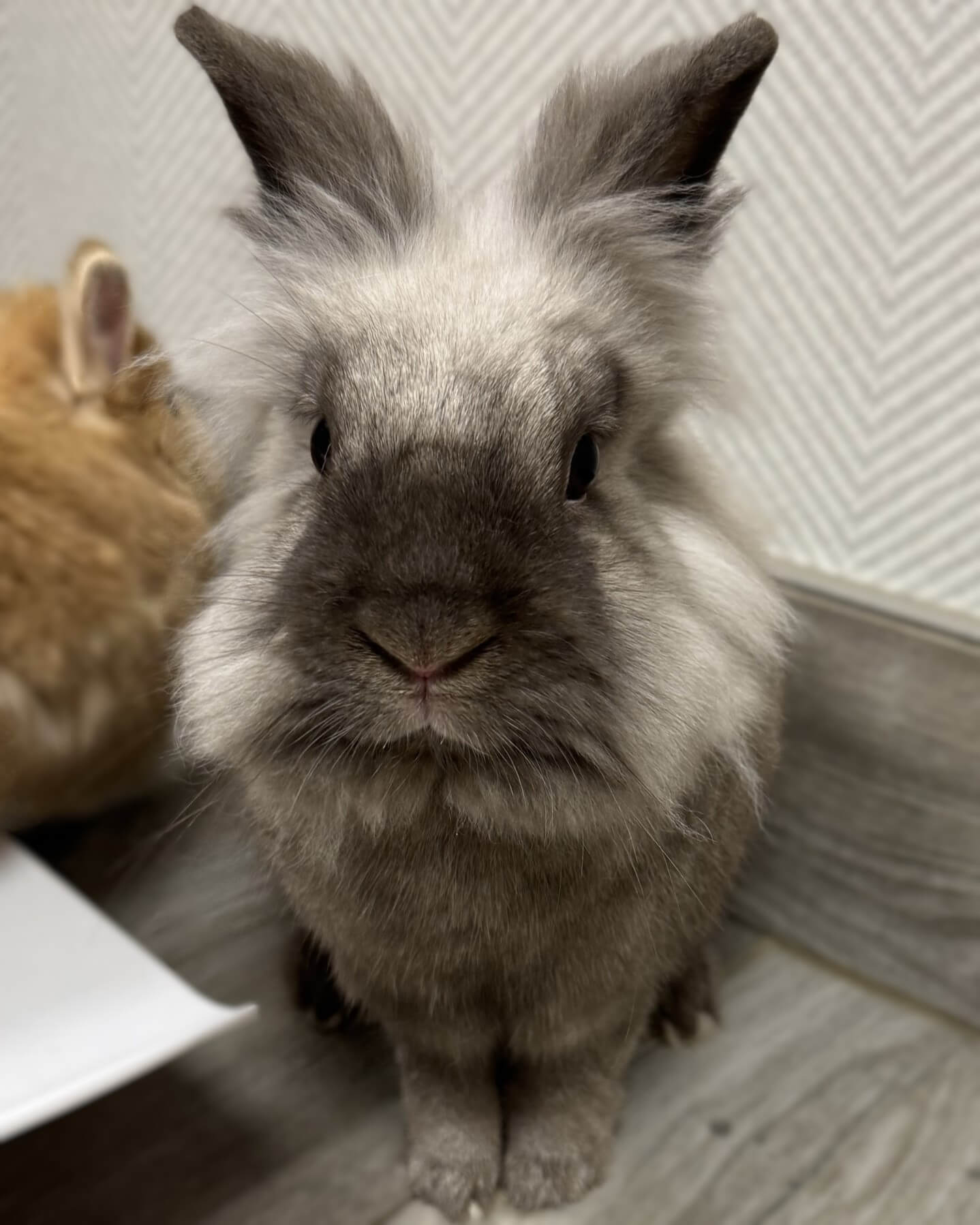Rabbit Care Guide
Everything You Need to Know to Keep Your Rabbit Happy and Healthy
Rabbits are intelligent, active, and affectionate pets that can bring joy to many households. Whether you’re considering adopting your first rabbit or are a long-time bunny owner, this guide will help you better understand their care needs. From housing and diet to common medical issues, we’ve got you covered at Duxbury Animal Hospital.
Is a Rabbit Right for You?
Rabbits typically live 6 to 10 years, though some can live even longer with proper care. They require regular, daily exercise and stimulation to maintain their physical and mental health. While they can be kept indoors, outdoors, or a combination of both, they do best when they have consistent access to a clean, safe environment and attention from their human companions.

What is important to know about a rabbit's habitat?
First, let's talk about their habitat. Forget small cages. Rabbits need spacious living areas to hop, explore, and stretch. Think of it as providing them with their own little apartment. A hutch is a good start, but they need access to a larger run or a dedicated room. They're naturally active and need space to exercise.
Understanding Their Behavior and Housing Needs
Rabbits are prey animals, which means they’re naturally cautious and easily startled. Providing them with a hide box or safe retreat is important for their sense of security. When kept indoors, they can have free run of a rabbit-proofed home—be sure to cover wires, secure toxic plants, and protect furniture and baseboards from nibbling.
Multiple rabbits should each have their own space to prevent territorial disputes. Their enclosures should include soft, thick bedding and should be kept clean and dry. Avoid wire flooring, which can lead to pododermatitis (sore feet), and provide outdoor rabbits with shaded, weather-protected hutches. With consistency and patience, rabbits can even be litter box trained.
What should a rabbit's diet consist of?
Hay is the cornerstone of a rabbit's diet. It should make up about 80% of what they eat. Think of it as the fiber that keeps their digestive system running smoothly. Timothy hay is a great option. Supplement this with fresh greens like romaine lettuce, kale, and parsley. Pellets should be given sparingly as a treat, not the main source of food, only about a quarter cup a day. Remember, a healthy diet is crucial for preventing dental and digestive problems. A rabbit's teeth constantly grow, so hay is vital for wearing them down.
Fresh leafy greens are another daily essential, but be cautious—some greens are high in calcium, which can lead to bladder stones. Fruits and sugary treats should be considered rare indulgences. A pelleted rabbit diet can supplement nutrition, but should not replace hay and greens. Access to unfiltered sunlight is also beneficial for natural vitamin D production.
Common Health Issues
Health is another vital aspect. Rabbits are prey animals, so they often hide signs of illness. Regular vet checkups are essential, especially with a vet experienced in rabbit care.
What health considerations should rabbit owners be aware of?
Look for changes in your rabbit's appetite, droppings, and behavior.
Be aware of common rabbit health issues like:
- Dental disease
- Gastrointestinal (GI) stasis (this is an emergency!)
- Pneumonia and upper respiratory infections (Pasteurellosis)
- Bladder stones
- Ovarian cysts
- Cancer
- Pododermatitis (sore feet)
- Conjunctivitis (eye infections)
- Neurologic disease (Encephalitozoonosis)
- Spinal fractures
And remember, rabbits need to be spayed or neutered to prevent health issues and unwanted litters.
Spaying and Neutering
Spaying or neutering is highly recommended for rabbits. As they age, they can develop cysts and tumors in their reproductive organs, which can shorten their lifespan. By spaying or neutering, you can eliminate many of these risks. Talk with your veterinarian to determine whether your rabbit is a good candidate for surgery, especially considering the anesthesia risks involved.
The Key Points of Rabbit Care
Caring for a rabbit requires space, a proper diet, social interaction, and diligent health monitoring. They're intelligent and affectionate animals that can bring immense joy to your home. But, it's crucial to understand their needs before bringing one home. As a veterinarian, I've seen firsthand the impact of proper care on a rabbit's well-being.
More Questions?
If you still have questions about rabbit care or you’d like to schedule your next wellness exam, please don’t hesitate to call us at (781) 737-7820 or email us at info@duxburyanimalhospital.com. We want to ensure that you and your rabbit have a happy, healthy life together.